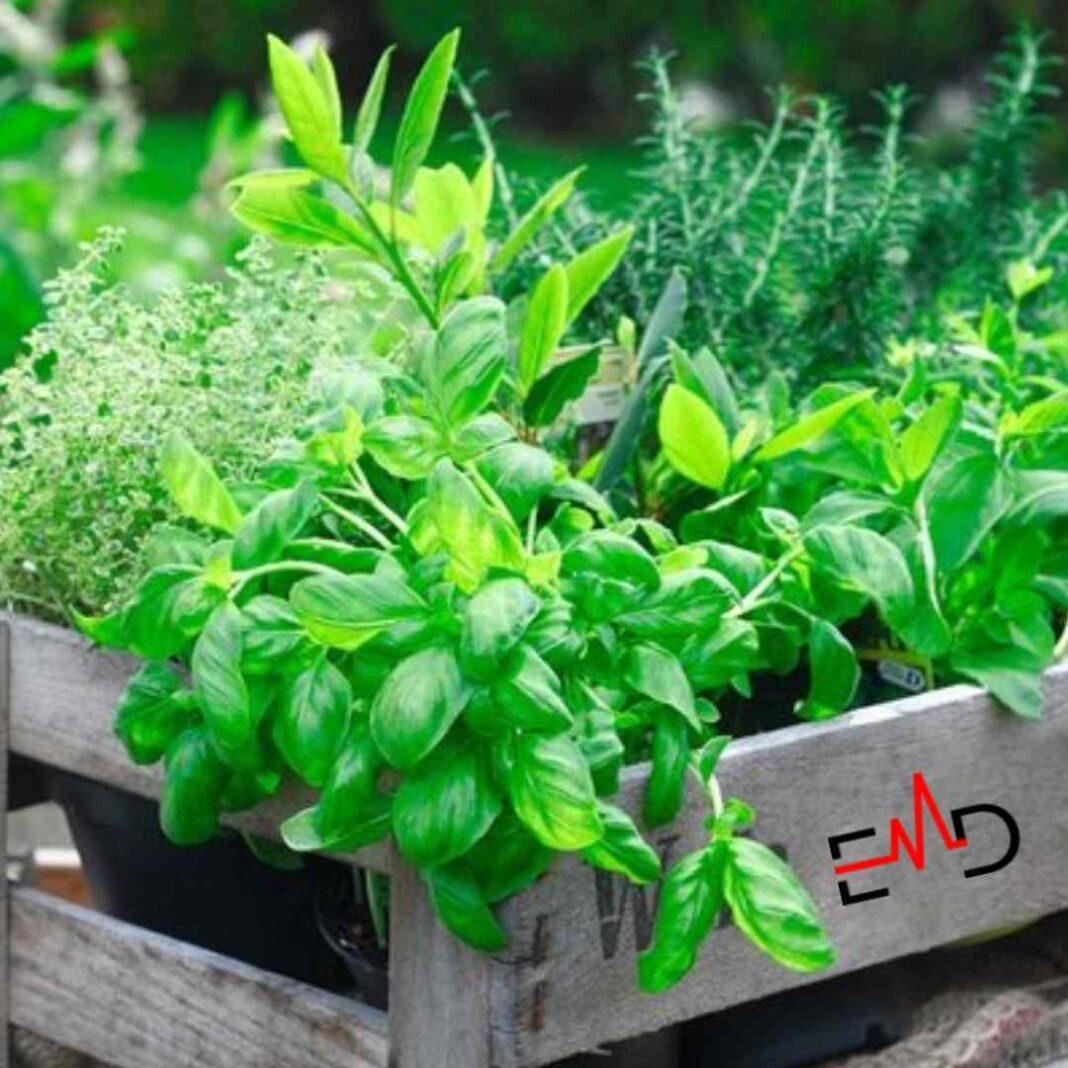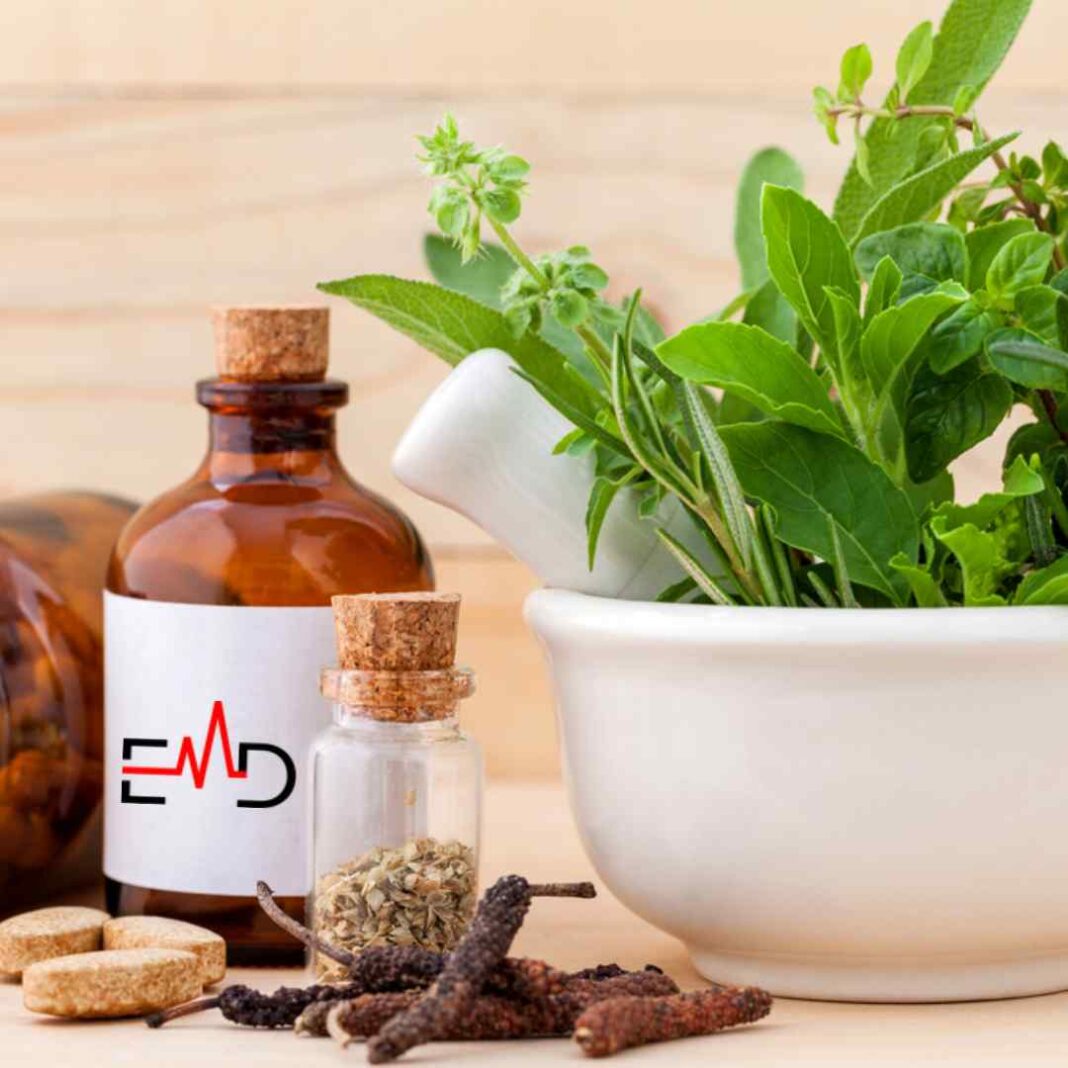Exercise Daily – Welcome to the world of medicinal herb gardening! Whether you’re a seasoned herbalist or just starting your journey into herbal medicine, cultivating your culinary herb garden can be fulfilling and beneficial. Let’s delve into the art of growing Grow Your Own Herbs for Natural Remedies, providing the information you need to start your homegrown herbal remedies.
Growing herbs at home offers numerous advantages, from access to fresh, organic ingredients for both medicinal and culinary purposes to the therapeutic joys of connecting with nature. With the right selection of easy-to-grow herbs, you can create a personalized herbal garden that supports your well-being and enhances your culinary creations.
Benefits of Cultivating a Medicinal Herb Garden
Cultivating a medicinal herb garden offers a wide array of benefits. Firstly, it allows easy access to medicinal herbs, ensuring a ready supply of natural remedies for common health needs. Additionally, it promotes sustainability and self-sufficiency by reducing reliance on store-bought products. Furthermore, gardening has therapeutic effects, relieving stress and promoting mental well-being.
Herbs have been utilized for centuries to enhance athletic performance, providing a natural and holistic approach to improving physical abilities. These natural remedies offer a variety of benefits to athletes, ranging from increased energy levels to improved endurance and recovery.
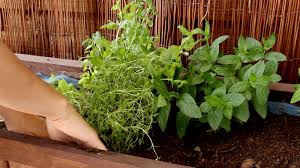
Choosing the Right Location for Your Herb Garden
The success of your herb garden depends on choosing the right location. Look for an area that receives ample sunlight, ideally six to eight hours daily. Ensure good drainage to prevent waterlogged soil, as most herbs prefer well-draining conditions. Consider the proximity to your home for easy access and monitoring.
Ginseng is a popular herb known for its ability to increase energy levels and combat fatigue. Athletes often incorporate ginseng into their regimen to enhance their stamina and endurance during workouts or competitions. By improving overall energy levels, ginseng helps athletes perform at their peak for longer durations.
Rhodiola rosea, also known as golden root, is another herb revered for its ability to enhance endurance and reduce fatigue. Athletes facing grueling training sessions or endurance-based competitions often turn to rhodiola to improve their staying power and maintain optimal performance levels throughout their endeavors.
Selecting the Perfect Medicinal Herbs
When choosing herbs for your garden, consider starting with easy-to-grow varieties like lemon balm, which not only thrives in various conditions but also has medicinal properties to support the immune system. You can grow lemon balm from seed or purchase starter plants from local nurseries or online sources like Strictly Medicinal Seeds.
Understanding Medicinal Herbs
Medicinal herbs are plants that possess healing properties and are used for various health purposes. Understanding the different types of medicinal herbs, such as adaptogens, vulnerabilities, and nervines, will help you curate a diverse garden that caters to your needs.
Easy-to-Grow Medicinal Herbs
Choosing easy-to-grow herbs is a wise decision if you’re a beginner or have limited gardening space. Herbs like rosemary, thyme, and basil are resilient and forgiving, making them ideal for novice gardeners.
Popular Medicinal Herbs for Health
Certain herbs have gained popularity for their exceptional health benefits. Chamomile, peppermint, and calendula are highly regarded for their soothing properties, aiding digestion, and promoting overall well-being.
Herbs for Culinary Delights
Why limit yourself to herbs solely for medicinal purposes when you can also enhance your culinary creations? Herbs like oregano, sage, and lavender have medicinal properties and delightful flavors to your dishes.
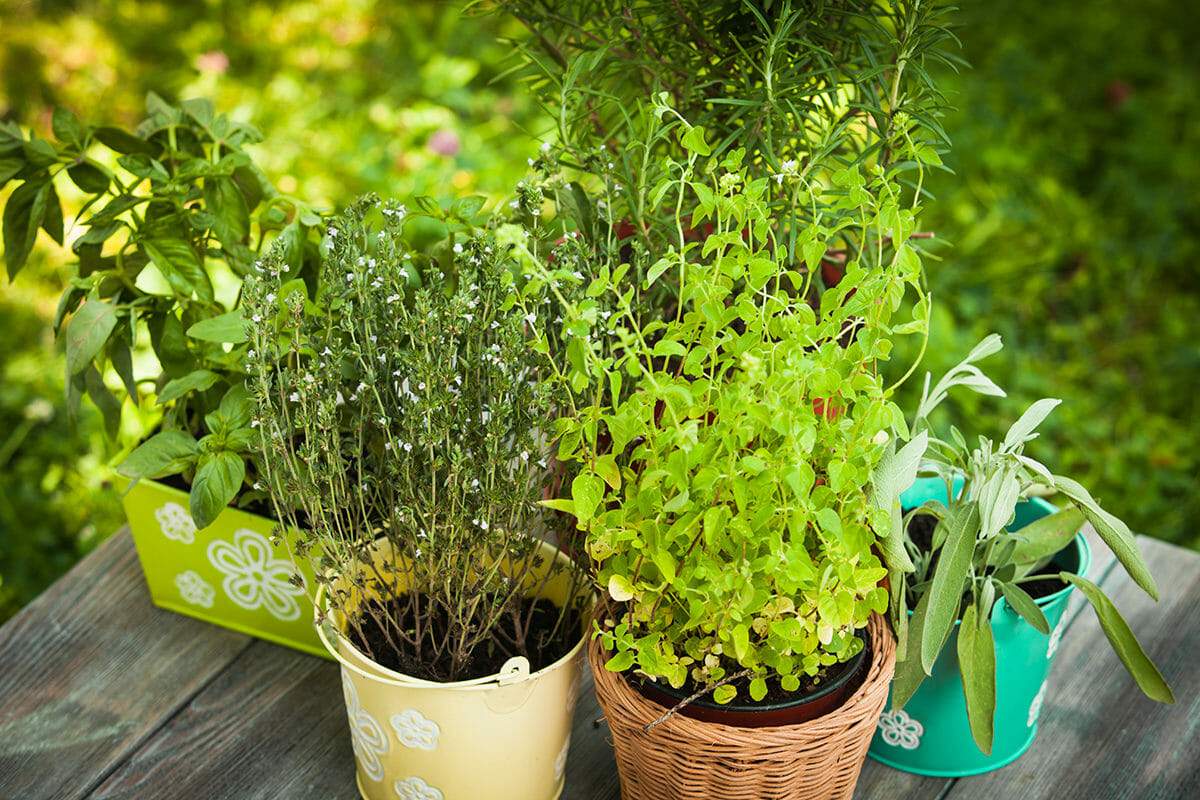
Starting Your Medicinal Herb Garden
Whether you have a spacious backyard or limited space for gardening, herbs can be grown in containers, making them accessible to everyone. With a bit of care and attention, herbs like mint, thyme, and basil will flourish on your windowsill or balcony, providing abundant fresh herbs for cooking and healing.
Growing Herbs from Seeds
Growing herbs from seeds offers a rewarding experience and allows you to choose from a wide variety of herb options. Start by selecting high-quality seeds and following proper sowing techniques to ensure successful germination.
Transplanting Young Herb Seedlings
If you prefer a head start, purchase young herb seedlings from nurseries or start your own by propagating cuttings. Transplanting young seedlings requires careful handling and proper acclimatization to their new environment.
Creating a Natural and Nutrient-Rich Soil
Herbs thrive in well-draining soil that is rich in nutrients. Prepare your garden bed by amending the soil with organic matter such as compost or well-rotted manure to provide the nutrients for healthy growth.
Providing Adequate Water and Sunlight
Watering and sunlight are crucial factors in herb cultivation. Most herbs prefer moderate watering, allowing the soil to dry out slightly between waterings. Additionally, ensure that your herbs receive adequate sunlight to promote robust growth and enhance their medicinal properties.
Caring for Your Herb Garden
As you embark on your journey of growing and using medicinal herbs, consider exploring resources from reputable publications like the Herbal Academy and Herb Quarterly. These sources offer valuable insights into the study of herbal medicine, providing you with remedy recipes and garden plans tailored to your needs.
Pruning and Harvesting Medicinal Herbs
Regular pruning keeps your herb garden tidy and encourages healthy growth. Harvesting your herbs at the right time, such as when the oils are most concentrated, ensures maximum potency.
Preserving Herbs for Year-Round Use
Proper preservation techniques are essential to enjoy the benefits of your herb garden beyond the growing season. Drying, freezing, or making herbal-infused oils and vinegar are effective methods of preserving herbs for year-round use.
Making Herbal Teas and Infusions
Herbal teas and infusions are a delightful way to enjoy the healing properties of your medicinal herbs. Experiment with different combinations and brewing methods to create soothing and therapeutic beverages.
Crafting Herbal Remedies and Tinctures
Take your herb garden to the next level by using your harvested herbs to create homemade herbal remedies and tinctures. From salves to syrups, the possibilities are endless for harnessing the healing power of your herbs.
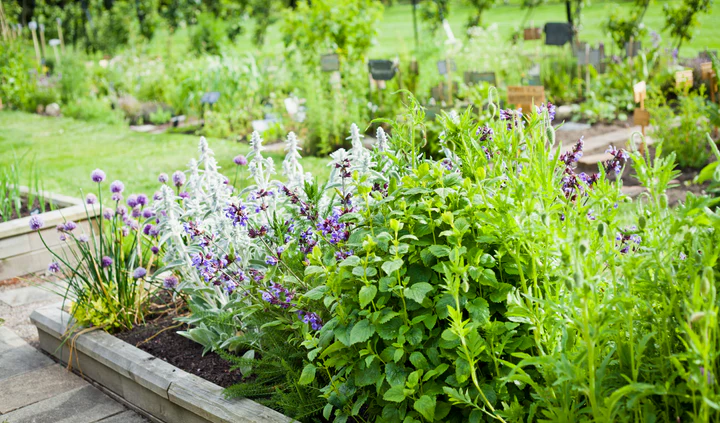
Growing Medicinal Herbs Indoors
Benefits of Indoor Herb Gardening
Indoor herb gardening allows you to grow herbs year-round, regardless of the outdoor climate. It also provides easy access to fresh herbs for cooking and remedies right from your kitchen.
Choosing the Right Herbs for Indoor Cultivation
Certain herbs adapt well to indoor conditions, making them ideal choices for indoor herb gardening. Herbs like mint, thyme, and basil thrive indoors and can be grown successfully on windowsills or under grow lights.
Essential Tips for Growing Herbs Indoors
Create a conducive environment for your indoor herb garden by providing adequate light, proper watering, and suitable containers. Pay attention to temperature and humidity levels to ensure optimal growth.
Troubleshooting Common Herb Garden Issues
Dealing with Pests and Diseases
Just like any garden, herb gardens may encounter pests and diseases. Implementing preventive measures and organic pest control methods can help keep these issues at bay.
Addressing Nutritional Deficiencies
Nutritional deficiencies can manifest in the form of stunted growth or yellowing leaves. Understanding the nutrient requirements of your herbs and providing appropriate supplements can help address and prevent deficiencies.
Managing Climate and Seasonal Challenges
Different herbs have varying climate preferences. By understanding your herbs’ growing conditions and seasonal requirements, you can adapt your gardening practices to overcome climate-related challenges.
Exploring Advanced Techniques in Medicinal Herb Gardening
Propagating Herbs through Cuttings
Propagating herbs through cuttings is an effective way to expand your herb garden. You can multiply your herb collection by taking stem cuttings and providing suitable conditions for rooting.
Extending the Growing Season
With the help of season extension techniques, you can enjoy fresh herbs beyond their usual growing season. Methods like cold frames, row covers, or indoor gardening can help prolong the harvest.
Companion Planting for Optimal Growth
Companion planting involves strategically placing herbs and other compatible plants together to enhance growth and repel pests. Using companion planting techniques, you can create a harmonious and beneficial environment for your herbs.
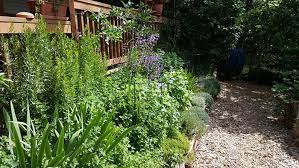
Conclusion
Congratulations! You now have the knowledge and tools to embark on your journey of cultivating a medicinal herb garden. By growing your herbs for healing and wellness, you can create a sustainable and bountiful source of natural remedies. Remember to choose the right herbs, provide proper care, and enjoy the therapeutic benefits of your garden. Start small, experiment, and allow your herb garden to flourish as you nurture it with love and dedication.
FAQs – How to Grow Your Own Herbs for Natural Remedies and Cooking
Q: Can I grow herbs in my vegetable garden?
A: Absolutely! Growing herbs alongside your vegetables can provide numerous benefits. Herbs can attract pollinators, repel pests, and enhance the flavor of your vegetable dishes. Additionally, many herbs have natural repellent properties that can help protect your vegetable garden from pests.
Q: How often should I water my medicinal herbs?
A: The watering frequency for medicinal herbs can vary depending on the specific herb and the environmental conditions. As a general guideline, most herbs prefer moderate watering, allowing the top inch of soil to dry out between waterings. It’s important to avoid overwatering, as excessive moisture can lead to root rot and other issues. Monitor the moisture level of the soil and adjust your watering schedule accordingly.
Q: Can I use any type of soil for my herb garden?
A: While herbs can be relatively adaptable, they generally prefer well-draining soil rich in organic matter. A good potting mix or garden soil amended with compost or well-rotted manure can provide the necessary nutrients and drainage. Avoid heavy clay soils that retain too much moisture, as they can lead to root problems. If you’re unsure about the quality of your soil, you can perform a soil test to assess its composition and make any necessary amendments.
Q: Are there any herbs that are not suitable for indoor cultivation?
A: While many herbs can thrive indoors, some have specific requirements that may make indoor cultivation challenging. Herbs like dill, fennel, and coriander tend to have deep taproots and may not be suitable for shallow containers. Additionally, larger herbs like sage and rosemary may require more space and adequate lighting to grow indoors successfully. It’s important to research the specific needs of each herb before deciding to grow them indoors.
Q: How can I prevent pests from damaging my herb garden?
A: Preventing pests in your herb garden starts with maintaining a healthy growing environment. Ensure proper airflow and sunlight, as this can help deter pests. Regularly inspect your plants for signs of pests or diseases, and promptly address any issues. You can also use natural pest control methods such as companion planting, introducing beneficial insects, like ladybugs or lacewings, or using organic pest repellents like neem oil or insecticidal soap. Maintaining good garden hygiene by removing debris and weeds can also help prevent pest infestations.
Q: How long does it take for herbs to mature and be ready for harvest?
A: The time it takes for herbs to mature and be ready for harvest can vary depending on the herb and growing conditions. Some herbs, like basil and cilantro, can be harvested within a few weeks of planting. Others, such as perennial herbs like rosemary or thyme, may take several months to establish and produce a substantial harvest. Researching the herb you’re growing is important to understand its growth habits and approximate harvesting timeline.
Q: Can I use dried herbs to make herbal remedies?
A: Yes, dried herbs can be used to make herbal remedies. Drying herbs is a common method of preserving them for long-term use. Dried herbs can be used in various preparations, including teas, tinctures, salves, and infused oils. It’s important to consider the appropriate ratios and measurements when using dried herbs since their potency may differ from fresh ones. Follow recipes or guidelines for dried herbs to ensure accurate dosing and optimal results.

